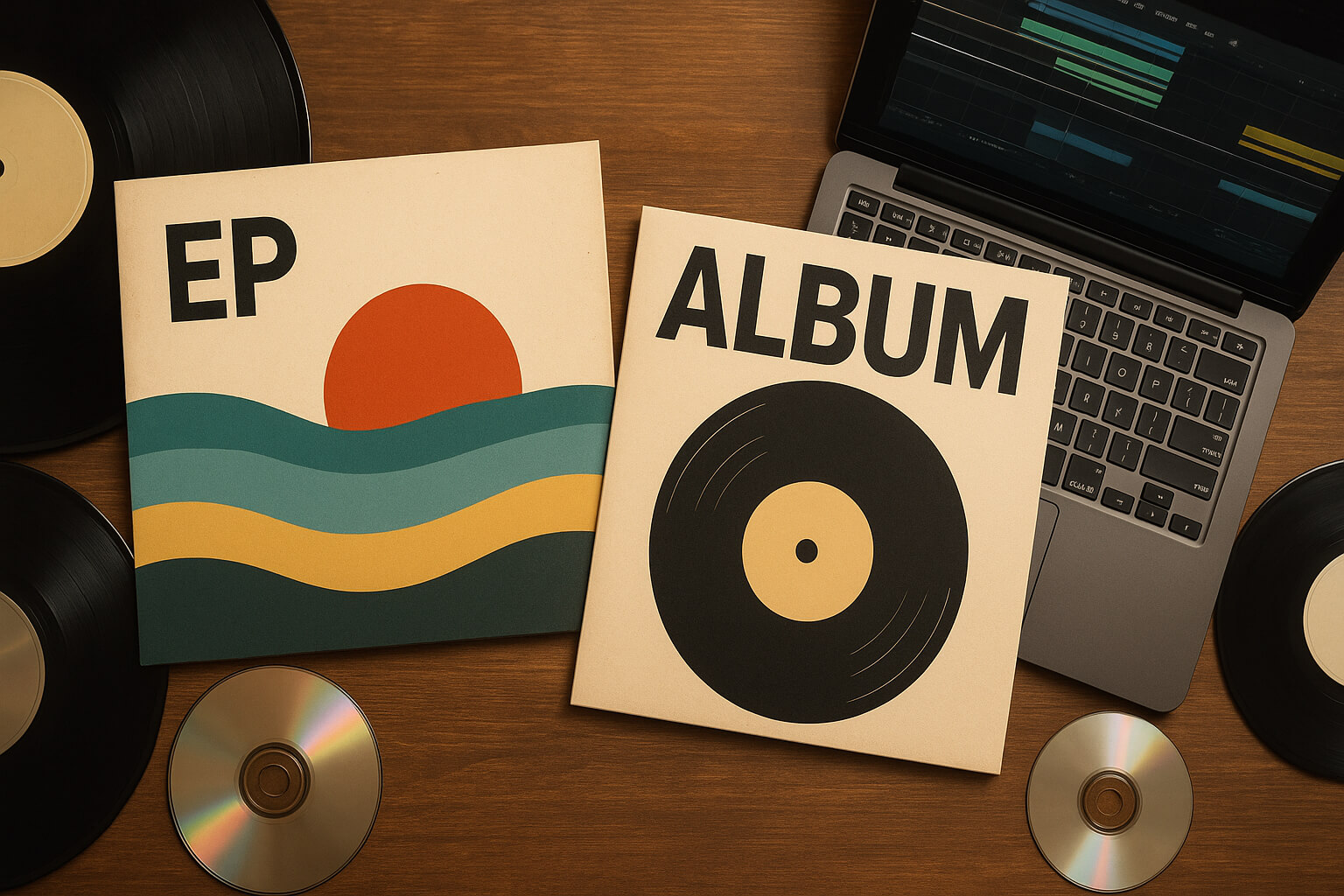August 14, 2025

If you're a music fan or aspiring artist, you've likely seen the terms EP and Album used across streaming platforms, artist bios, and release announcements. But what exactly makes them different?
While both are collections of songs, they vary in length, intent, and how they’re perceived by the music industry and listeners. Here's a deeper look at what sets an EP apart from an album — and why choosing the right format matters.
An EP, short for Extended Play, might sound like a long release, but it's actually shorter than an album. Most EPs contain three to six tracks and typically run between 15 to 30 minutes.
Artists often use EPs as a creative tool to:
The idea of the EP comes from the vinyl era, when it was introduced as a medium offering more music than a single, but less than a full LP (long play). Today, EPs are common across digital platforms like Spotify and Apple Music, and they’re especially useful in the fast-paced, playlist-driven world of streaming.
Helpful resource: According to RocketPages’ music release guide, EPs are one of the best ways for new artists to release quality content without needing a huge budget or long production schedule.
An album — often referred to as an LP or Long Play — is a more extensive collection of songs. It typically features seven or more tracks and runs 30 minutes or longer.
Albums are usually seen as a complete artistic statement, offering listeners a more immersive or thematic experience. Many artists use albums to:
Some of the most impactful records in music history — like Beyoncé’s Lemonade, Pink Floyd’s The Dark Side of the Moon, or Kendrick Lamar’s DAMN. — are albums because they reflect a full vision, not just a collection of songs.
Explore further: Check out RocketPages' breakdown of music production tools to learn how artists create albums using modern technology like DAWs (Digital Audio Workstations).
Choosing between an EP and an album depends on several factors, including where you are in your musical journey, your available resources, and your creative goals.
An EP is typically chosen when an artist wants to:
On the other hand, an album makes sense when an artist is ready to:
For newer musicians or producers, an EP can be a smart way to practice releasing music and build confidence. According to RocketPages’ beginner music checklist, shorter projects can help artists develop consistency and improve their production skills over time without feeling overwhelmed.
In the age of Spotify and YouTube Music, the difference between EPs and albums has blurred. Some artists label longer releases as EPs for stylistic reasons, while others treat short albums as full projects to qualify for charts or playlists.
Streaming platforms typically categorize a release as an EP if:
But ultimately, what you call your project is a creative decision. Some artists prefer to call their 6-track release an album because of its depth. Others intentionally use the “EP” label to signal something more casual or experimental.
Here are some hand-picked articles from RocketPages to help you plan your next release:
Stay up to date with the latest tips, expert insights, product reviews, and step-by-step guides to help you grow, create, and succeed—no matter your industry or passion.